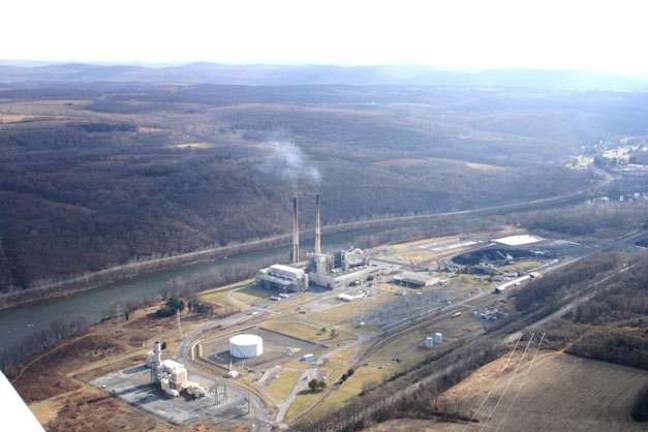Study says Pennsylvania coal-powered plant caused low birth weights in Sussex County

BY ERIKA NORTON
SUSSEX — A team of scientists say they have linked the emissions from a coal-fired power plant in Pennsylvania to babies born with a low birth weight in four New Jersey counties, including Sussex County.
According to the report, researchers at Lehigh University studied records of the emissions from the Portland, Pa., Generating Station along the Delaware River, weather records on wind direction, and the birth weights of babies born in the adjoining Sussex, Morris, Hunterdon and Warren counties. They say that from 1990 to 2006, babies in these counties were 17 percent more likely to be born with a very low birth weights — under three pounds, five ounces — and 6.5 percent more likely to be born with a low birth weight — under five and half pounds.
First of its kindWhile studies have linked coal emissions to other health problems such as asthma and cardiovascular disease, the researchers say this is the first report of its kind to show health impacts extending to prenatal exposure, especially babies born 20 to 30 miles away from a coal-burning plant.
Out of the four counties downwind of the Portland plant, babies born in Sussex County appear to have been least affected. The county is the least aligned with the wind direction from the Portland power plant, although its distance to the power plant (about 25.08 miles) is similar to Hunterdon County (about 25.21 miles).
In October 2011, the EPA required the plant to reduce its toxic air emissions by 81 percent over the next three years, and on June 1, 2014, the plant permanently stopped using coal under a consent agreement from the states of New Jersey and Connecticut.
New Jersey Department of Environmental Protection Spokesperson Bob Considine said the DEP has not read the report but has certainly heard about it and was “intrigued by it.”
“One of the reasons we fought for the significant reductions in pollution for the plant was that the SO2 emissions coming from the plant were unhealthy for residents in Warren County and other surrounding areas,” Considine said. “The whole goal of getting the plant to reduce its emissions was to protect the people of New Jersey.”
According to David Gaier, a spokesperson for the current owner of the plant, NRG Energy, there are three combustion turbines left on the site that are still operational. They run on natural gas or number 2 fuel oil, he said, but as of now, they very rarely run.
'Not conclusive'Ellen Phelps, the Sussex County Office of Public Health Nursing director, said she read the study and it seemed that the study does not control for other reasons for low birth weight, such as smoking, birth defects, infections in the mother, age of mother or others.
“For that reason, I would find the study interesting, but not conclusive unless all of these other factors were controlled for in the study design,” Phelps said. “In other words, this study would be a starting point that warrants further study with strict controls so that other factors could be ruled out as reasons for low birth weight.”
One of the biggest causes of low birth weight is smoking, according to information from the March of Dimes. Pregnant women who smoke are nearly twice as likely to have a low-birth weight baby than women who don’t smoke.
Other factors include chronic health conditions, not gaining enough weight during pregnancy, being younger than 17 or older than 35, having little education, low income or being unemployed. Race/ethnicity is also a risk factor too, with black women more likely than others to have a low birth weight baby — more than 13 percent of black babies each year.
Coal industryThis study comes at a time when President Donald Trump has vowed to restore the coal industry in the country by rolling back Obama era regulations.
Gaier said that the three combustion turbines left on the Portland site cannot run on coal, and under the consent agreement, the plant can't ever again use coal. The two remaining coal plants in New Jersey are set to shut down in June.
The New Jersey Sierra Club, who rallied to have the power plant closed in the early 2000s, released a statement regarding the study.
“With the Christie Administration and President Trump looking to revoke rules in place to protect our air quality and increase the use of dirty fuels, this report shows pollution from out-of-state hits us right in our lungs,” Jeff Tittel, director of the NJ Sierra Club, said.
“It was a big victory to get this power plant to close, but now President Trump wants to reverse the progress we have made to protect our air,” Tittle continued. “While it is clear coal power is a threat to human health and can even cause low birth rates, we will see more pollution and dirty air with Trump’s executive orders. What Trump is trying to do is rescue the dinosaur coal power plants that are dying because they are clearly the technology of the past.”
Editor's note: This article has been updated from the original.